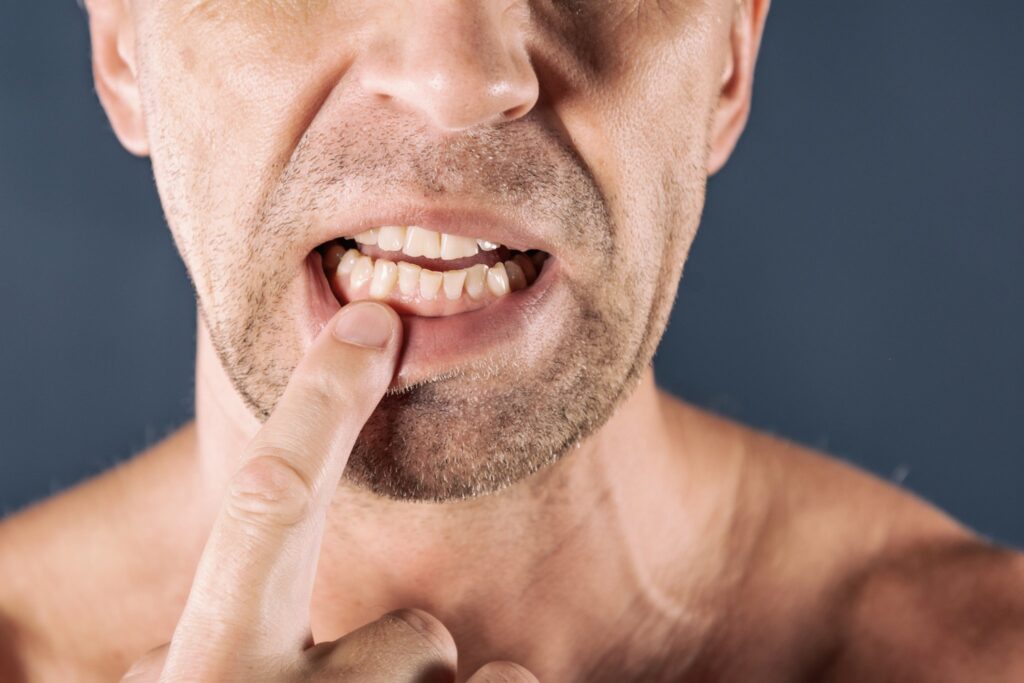Periodontal disease, commonly known as gum disease, affects millions of people worldwide. Recognizing the early signs of gum disease is crucial for maintaining oral health and preventing further complications. In this blog post, we highlight four key indicators that may suggest the presence of periodontal disease. By staying vigilant and seeking timely treatment, you can protect your gums and preserve a healthy smile.
- Persistent Gum Inflammation: Healthy gums should appear pink, firm, and well-attached to the teeth. If you notice persistent redness, swelling, tenderness, or bleeding while brushing or flossing, it may be a sign of gum disease. Inflamed gums are often an early indication of an underlying issue that should not be ignored.
- Receding Gums: Gum recession occurs when the gum tissue gradually pulls back, exposing more of the tooth’s root. This can make your teeth appear longer and lead to tooth sensitivity. Receding gums may be a sign of advancing gum disease and should be evaluated by a dental professional to prevent further damage and potential tooth loss.
- Persistent Bad Breath: Bad breath, also known as halitosis, can be an embarrassing symptom of gum disease. It is caused by the buildup of bacteria in the mouth, particularly in the spaces between the teeth and gums. If your bad breath persists despite regular oral hygiene practices, it may indicate the presence of gum disease and warrant a dental examination.
- Loose or Shifting Teeth: As gum disease progresses, it can weaken the supporting structures that hold your teeth in place. If you notice any teeth becoming loose, shifting, or changes in your bite, it could be a sign of advanced periodontal disease. Seeking immediate dental attention is essential to prevent further tooth loss and preserve your oral health.
If you experience any of these signs, it’s crucial to schedule an appointment with Dr Ivanov or your general dentist promptly. They can perform a comprehensive examination, diagnose the presence and extent of gum disease, and recommend appropriate treatment options to halt its progression.
Remember, early detection and intervention play a vital role in managing periodontal disease effectively. Maintaining a consistent oral hygiene routine, including brushing twice daily, flossing, and regular dental check-ups, are essential habits for preventing gum disease and maintaining optimal oral health.

